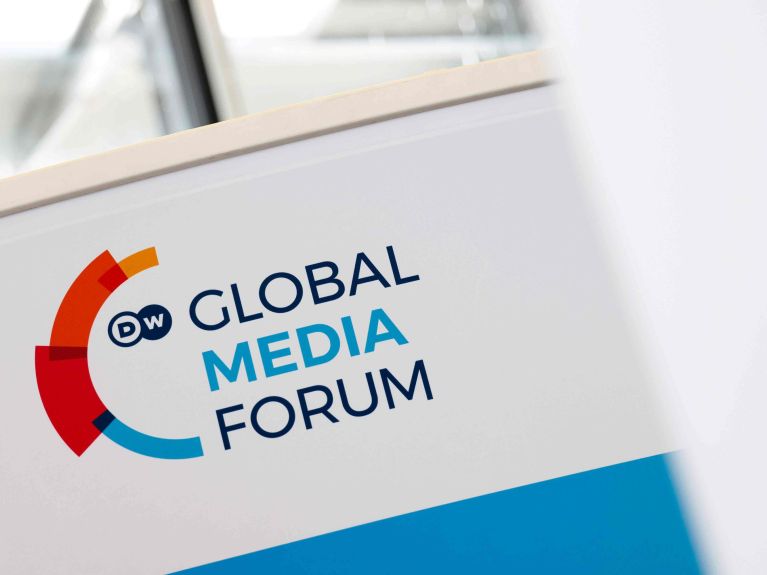Finding solutions to the challenges of journalism
“Sharing Solutions” is the motto of this year’s Deutsche Welle Global Media Forum in Bonn. For two days, the participants will discuss threats to media professionals.

Journalism faces major challenges: it is often almost impossible to distinguish fake news from genuine news reports. What is more: audience attention spans are getting shorter and shorter. A lot of people seek quick answers to complex questions. All over the world, populists, autocrats and dictators are putting journalists under pressure. What joint action can be taken to address these problems? Some 1,500 participants will be discussing this topic at the 17th Deutsche Welle (DW) Global Media Forum in Bonn.
At the start of the event, DW director Peter Limbourg said: “Optimism is especially important in dark times, because pessimists don’t usually contribute to solutions. Let’s share solutions and ideas.”
Under the motto “Sharing Solutions”, personalities from politics and the media from over 120 countries will meet at the World Conference Center on 17 and 18 June 2024. In workshops and panels, they will engage in discussion on topics such as reporting on current conflicts, ensuring the safety of journalists worldwide, and combating misinformation and internet censorship that seeks to suppress high-quality journalistic information. Artificial intelligence (AI) is a particular focus of this year’s forum.
A key issue: women’s rights and minority rights
In his opening speech via video message, North Rhine-Westphalia premier Hendrik Wüst said that AI offers both opportunities and challenges. “A lot of people find it difficult to distinguish between true and false information, so this highlights the need for media literacy. The Global Media Forum is the perfect platform to bring the two together.”
In her speech, German Foreign Minister Annalena Baerbock thanked the participating journalists from all over the world for their commitment and dedication. “Independent journalism is under pressure worldwide. One reason for this is that journalists become targets in war and conflict. Some 120 journalists were killed while doing their job in 2023. Almost two thirds of them died in the Gaza Strip – that is unacceptable,” she said in her keynote speech. Baerbock said that only journalists had the opportunity to tell stories that would otherwise go unheard – and “to ask questions that would otherwise remain unanswered. To hold accountable those whose power would otherwise remain unchecked. And to be a voice for those who cannot speak loud enough to be heard at the moment.” Together with Philippine Nobel Prize winner Maria Ressa and Ugandan journalist Culton Scovia Nakamya, Baerbock then discussed restrictions on women’s rights and minority rights worldwide.
Since 2008, the forum has served as a unique interdisciplinary platform for intercultural dialogue, seeking to promote solutions aimed at safeguarding freedom of expression and combating misinformation worldwide.


